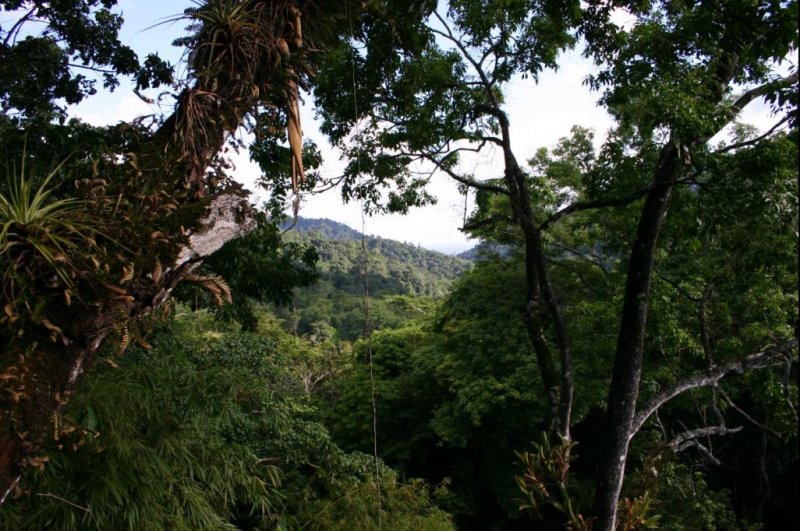Tropical forests, like this one in Trinidad, could eventually become a source of net positive carbon emissions if trees continue to lose out to human development. Photo by Ed Mitchard/University of Edinburgh
July 26 (UPI) -- For now, tropical forests remain an important site of carbon sequestration. But new research suggests regions of tropical forest could become net positive sources of carbon emissions.
Currently, new forest growth matches or slightly outpaces deforestation among most tropical forests, ensuring they remain effective carbon sinks. But the forests are increasingly threatened by human development.
As previous research has shown, trees store most of their sequestered carbon in their trunks, branches and leaves -- not in the soil or root system. When a tree is felled, almost all of its carbon is likely to be make its way back into the atmosphere.
Throughout the tropics, trees are being felled to make way for the explanation of agriculture and livestock grazing. Currently, deforestation accounts for roughly one-fifth of manmade carbon emissions.
Unless efforts are made to better protect tropical forests, researchers warn, that number is likely to climb.
"Encouragingly, recent international agreements commit to halting deforestation and degradation, but a lack of fundamental data for use in monitoring and model design makes policy action difficult," researchers wrote in their new paper on the subject, published this week in the journal Nature.
While enhanced protections against forest losses will likely ensure tropical forests remain healthy repository for excess carbon, it's hard to predict exactly how much carbon storage tropical forests will offer going forward.
Climate change is expected to bring about longer, more frequent droughts and more destructive wildfires, a threat to healthy forests. But higher concentration of carbon in the atmosphere is also expected to accelerate tree growth.
In addition to better protections for forests, authors of the new study suggest better monitoring efforts are needed to analyze the role tropical forests play in the global carbon cycle.
"Predicting how tropical forests will affect climate is a complex challenge -- we do not know how climate will affect forests, nor if countries will meet their commitments to safeguard them," Ed Mitchard, researcher at the University of Edinburgh, said in a news release. "Worryingly, research indicates that forests could soon stop counteracting warming, and instead become a major source of greenhouse gas."















